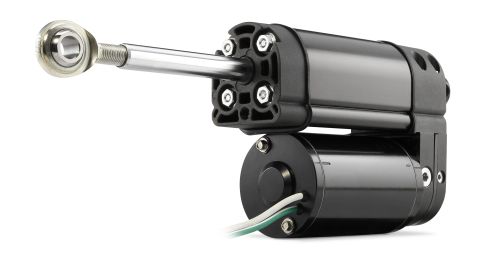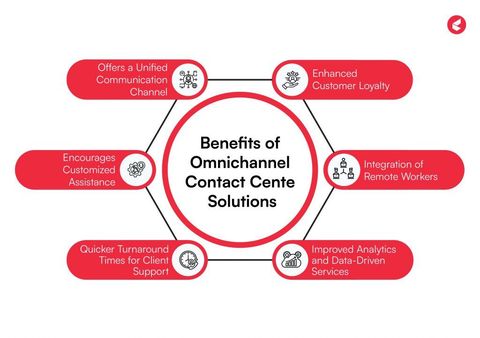Industrial PCs Explained: A Clear Guide with Helpful Tips, Information, and Expert Advice
Industrial PCs are specialized computing systems designed to operate reliably in environments where traditional computers may fail. These environments often include exposure to vibration, dust, moisture, high temperatures, electrical noise, and continuous operational workloads. The concept emerged as industries began automating more of their processes, requiring computers that could withstand demanding conditions without performance interruptions.
The rise of automated manufacturing, digital monitoring, robotics, and data-driven decision-making created a need for robust computing solutions. Unlike standard office computers, Industrial PCs are engineered with reinforced enclosures, long-life components, and enhanced connectivity options to support industrial automation systems, machine control, real-time data acquisition, and operational monitoring.
Industrial PCs exist because modern industrial operations depend heavily on accurate data, stable hardware, and continuous uptime. From factory assembly lines to energy plants, logistics centers, and transportation systems, Industrial PCs serve as the backbone for many mission-critical operations where uninterrupted performance is essential.
Importance
Industrial PCs play a central role in today’s industrial landscape as industries shift toward advanced automation, smart factories, and data-driven operations. Their importance can be understood through several key factors:
Reliable Operation in Harsh Environments
Industrial PCs are built to perform in conditions that would damage typical computing systems. Industries such as manufacturing, mining, oil and gas, transportation, and pharmaceuticals rely on these rugged systems to maintain continuous processes, prevent operational downtime, and ensure safety monitoring.
Support for Industrial Automation
Modern factories increasingly use robots, sensors, machine vision systems, and programmable logic controllers. Industrial PCs integrate seamlessly with these systems, supporting applications such as:
-
Process monitoring
-
SCADA systems
-
Predictive maintenance
-
Industrial cybersecurity
-
Equipment diagnostics
Their ability to process data in real time helps improve operational stability and efficiency.
Long Lifecycle and Predictable Performance
Industrial PCs often have extended product lifecycles, minimizing disruptions caused by hardware compatibility changes. This is crucial for industries that run long-term automation projects where consistency matters.
Impact on Multiple Sectors
Industrial PCs benefit a wide range of users, including:
-
Manufacturing engineers
-
Automation specialists
-
Plant operators
-
Quality control teams
-
Research facilities
-
Transportation and logistics centers
They solve problems like inconsistent data capture, system failures, environmental hazards, and integration challenges between different industrial systems.
Recent Updates
The past year has seen several advancements and trends in Industrial PCs, driven by digital transformation and increased adoption of smart technologies. Below are some notable updates observed throughout 2024 and early 2025.
1. Growth of Edge Computing (2024–2025)
Industrial PCs increasingly serve as edge computing devices, allowing data processing to occur closer to machines rather than in remote servers. This reduces latency and supports real-time decision-making in automation environments.
2. Rise of AI-Enabled Industrial PCs
Since mid-2024, manufacturers have integrated AI acceleration hardware—such as GPUs and neural processing units—into Industrial PC designs. These advancements support machine vision, anomaly detection, robotics control, and predictive analytics.
3. Expansion of Fanless Systems (2024)
Fanless Industrial PCs gained popularity due to their reliability in dusty or vibration-heavy environments. In 2024, several companies introduced new passive cooling technologies, improving thermal management without airflow components.
4. Cybersecurity Enhancements
Due to increasing cyber threats, updated firmware security standards and improved encryption became standard in many Industrial PCs released in 2024–2025. Secure boot and hardware-level authentication saw wider adoption.
5. Modularity and Customization Trends
From mid-2024 onwards, there has been a noticeable trend toward modular Industrial PC designs. This allows industries to choose processing modules, expansion ports, and storage options based on application needs without redesigning entire systems.
Laws or Policies
Industrial PCs are influenced by various regulations, depending on the region and industry. These rules help ensure operational safety, environmental compliance, cybersecurity, and technical reliability.
Compliance and Standards Affecting Industrial PCs
-
IEC 61131 and IEC 61010: Standards for industrial control systems, ensuring safe and reliable operation.
-
ISO 9001 and ISO 14001: Quality and environmental management requirements affecting manufacturing processes of Industrial PCs.
-
CE and FCC Requirements: These certifications regulate electromagnetic compatibility and ensure devices do not interfere with other systems.
-
RoHS and WEEE: Environmental regulations limiting hazardous substances and ensuring proper disposal of electronic equipment.
-
Industrial Cybersecurity Frameworks: Guidelines such as ISA/IEC 62443 ensure secure operation in automated environments.
Application-Specific Regulations
-
Pharmaceuticals may require compliance with GMP guidelines for equipment used in production monitoring.
-
Food processing environments often require hardware to follow IP-rated protection standards.
-
Transportation sectors may follow EN 50155 regulations for devices used in railway operations.
These laws shape the design, deployment, and maintenance requirements of Industrial PCs, ensuring safety, reliability, and environmental accountability.
Tools and Resources
Several tools and resources help users understand, evaluate, or implement Industrial PCs more effectively. These include technical reference platforms, monitoring tools, configuration analyzers, and knowledge-based portals.
Helpful Tools and Platforms
-
SCADA and Monitoring Systems: Used for real-time equipment data visualization.
-
Industrial Networking Tools: Protocol analyzers that support Modbus, CAN, EtherCAT, and industrial Ethernet environments.
-
Hardware Specification Platforms: Websites that compare Industrial PC models, processor types, rugged features, and environmental ratings.
-
Thermal Analysis Tools: Software that helps evaluate heat dissipation in industrial environments.
-
Reliability Prediction Tools: Used to calculate mean time between failures (MTBF).
Knowledge Resources
-
Technical documentation libraries
-
Industrial automation forums
-
Online engineering communities
-
Industry standards databases
-
Educational guides on embedded systems
These resources assist engineers, technicians, and decision-makers in selecting and configuring Industrial PCs for various operational needs.
Example Comparison Table
Below is a simple table comparing common Industrial PC categories:
| Type of Industrial PC | Typical Use Case | Key Strengths |
|---|---|---|
| Panel PC | Machine interfaces, SCADA screens | Touchscreen, compact design |
| Box PC | Automation control, data processing | High performance, modular |
| DIN-Rail PC | Control panels, compact systems | Space-saving, reliable |
| Rack-mount PC | Large-scale systems, research labs | Expandable, multi-slot design |
| Rugged Mobile PC | Field operations, transportation | Shock and vibration resistance |
FAQs
What makes an Industrial PC different from a regular computer?
An Industrial PC is designed for harsh environments, offering reinforced hardware, long lifecycle components, and stable performance under continuous workloads. It supports industrial protocols and is built to withstand extreme temperatures, vibration, and dust.
Where are Industrial PCs commonly used?
They are used in manufacturing plants, energy facilities, transportation systems, logistics hubs, laboratory environments, and smart city infrastructure. They support tasks such as automation control, data monitoring, robotics, and machine vision.
Do Industrial PCs support advanced technologies like AI or edge computing?
Yes. Modern Industrial PCs increasingly include AI acceleration hardware, advanced processors, and optimized frameworks that support edge analytics, automation algorithms, and intelligent monitoring systems.
How long does an Industrial PC typically last?
Industrial PCs generally have longer lifespans than consumer computers due to rugged components and controlled thermal designs. Lifecycles vary but often extend beyond several years, depending on operational conditions and maintenance.
Are there environmental ratings to consider when choosing an Industrial PC?
Yes. IP ratings indicate protection against dust and moisture, while MIL-STD tests measure shock and vibration resistance. Thermal ratings define safe operating temperature ranges.
Conclusion
Industrial PCs play an essential role in modern industrial operations, supporting stable and continuous performance in environments where traditional computers would struggle. Their rugged design, long lifecycle, and compatibility with industrial systems make them core tools for automation, monitoring, and data-driven decision-making.
Recent advancements—such as AI-enabled processing, modular hardware, secure firmware, and edge computing—have broadened their value across industries. Supported by clear regulatory frameworks and reliable technical resources, Industrial PCs continue to evolve as crucial elements of modern industrial infrastructure.





